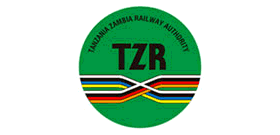 Zambia’s Dry Port: A New Hub for African Trade
Zambia’s Dry Port: A New Hub for African Trade
Zambia is set to transform regional trade with the development of the Kapiri Mposhi Dry Port, a strategic infrastructure project poised to boost connectivity and efficiency across Southern Africa. This initiative presents significant opportunities for African travel agents, opening new avenues for business and facilitating smoother travel logistics.
Kapiri Mposhi, strategically located at the intersection of the TAZARA Railway and the Zambia Railways line, serves as a crucial link within the Central Corridor. This key trade route connects Zambia to the port of Dar es Salaam and the broader Southern African Development Community (SADC) region. The dry port is designed to alleviate port congestion, streamline inland logistics, and enhance regional integration, benefiting Zambia and neighboring countries, including the DRC, Malawi, and Zimbabwe.
The Kapiri Mposhi Dry Port will feature state-of-the-art facilities, including container handling equipment, bonded warehouses, customs inspection zones, and upgraded road and rail links. The integration of modern ICT systems for cargo tracking will further enhance efficiency and transparency, providing African travel agents with real-time information to manage logistics and optimize travel itineraries.
For African travel agents, the dry port’s development translates into a wealth of new business opportunities. The improved logistics infrastructure will facilitate smoother and faster movement of goods, reducing transit times and costs. This efficiency boost opens doors for travel agents to develop specialized travel packages focused on trade and business travel, catering to the growing demand for seamless logistics solutions in the region.
The Zambian government is actively seeking international investment for the project, adopting a Public-Private Partnership (PPP) model. China has expressed strong interest in the project, signaling a potential influx of investment that could further accelerate development and enhance the dry port’s impact on regional trade. This collaboration with China also presents opportunities for tourism development, as improved infrastructure and connectivity can attract more visitors and boost Zambia’s tourism sector.
Zambia’s Minister of Transport and Logistics, Hon. Museba Frank Tayali MP, recently met with a Chinese delegation led by the Governor of China's Xinjiang Uyghur Autonomous Region, Erkin Tuniyaz, to discuss the project and broader infrastructure collaboration. Minister Tayali expressed gratitude for China’s continued interest in Zambia’s economic development and encouraged broader investment across various sectors. This high-level engagement underscores the strategic importance of the Kapiri Mposhi Dry Port and its potential to transform regional trade dynamics.
With feasibility studies completed, stakeholder consultations underway, land secured, and preliminary designs finalized, the project is moving rapidly towards implementation. The Zambian government is now focused on securing final partnerships to commence phased development. This progress signals a strong commitment to the project’s success and provides African travel agents with a clear timeline to prepare for the new opportunities that will emerge.
The Kapiri Mposhi Dry Port is more than just an infrastructure project; it represents a catalyst for economic growth and regional integration in Southern Africa. By enhancing connectivity, streamlining logistics, and attracting international investment, the dry port is poised to reshape trade patterns and create a more dynamic and efficient business environment. African travel agents stand to benefit significantly from this transformation, gaining access to new markets, enhanced service capabilities, and a stronger foundation for growth and success.
